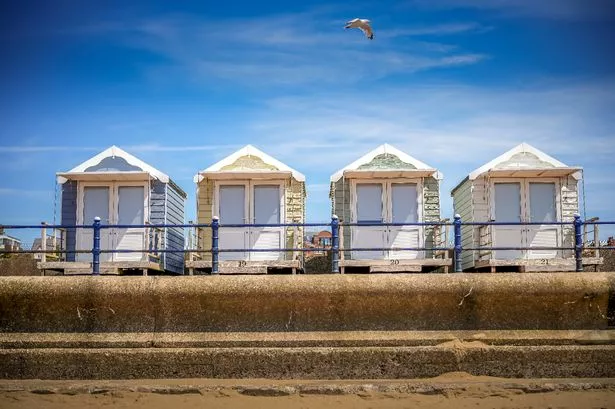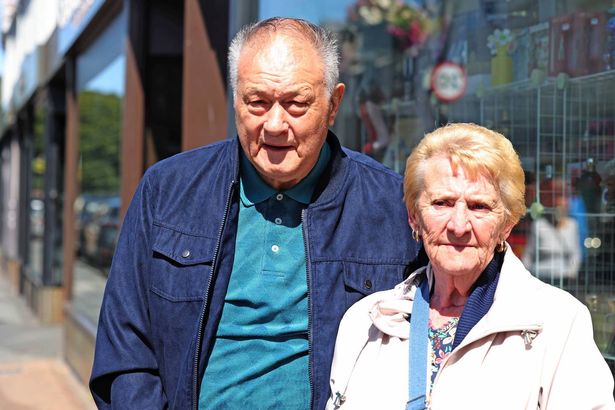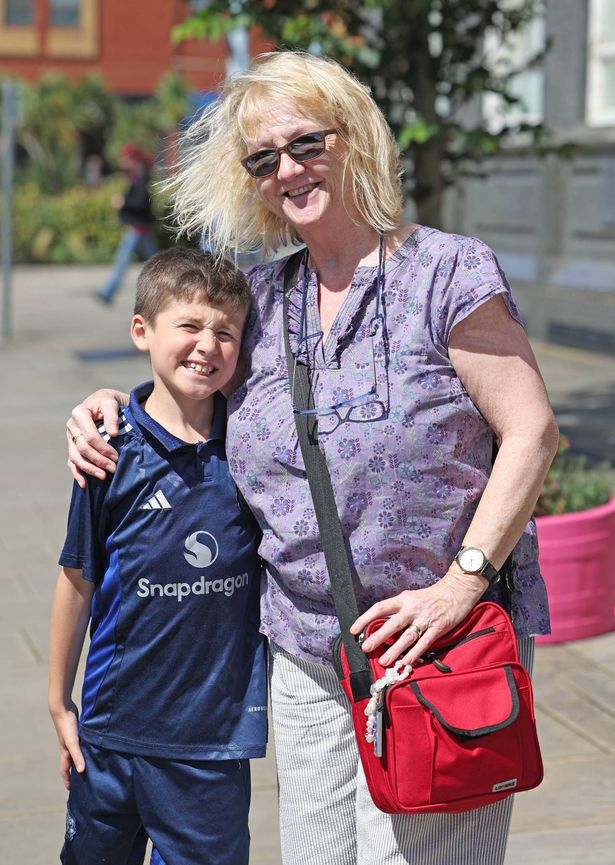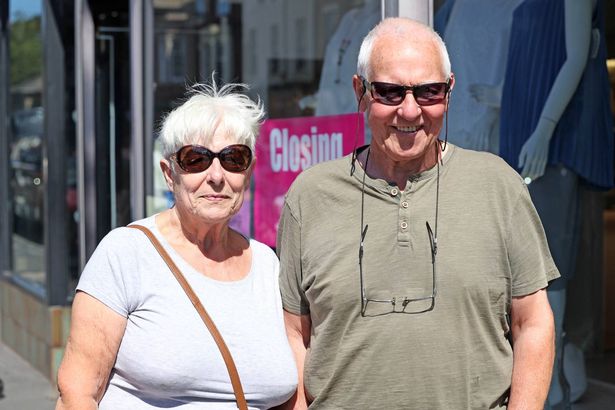Police have warned that people in an area where mostly affluent residents and retirees live Beach huts on the promenade overlooking the beach and the Irish Sea(Image: 2024 Getty Images)
Beach huts on the promenade overlooking the beach and the Irish Sea(Image: 2024 Getty Images)
With its immaculate high street, stylish boutiques, stunning lawns and coastal views, it’s a picture-perfect location. However, locals and visitors in St Annes and Lytham have started to notice a worrying trend.
Police have reported that professional “beggars” are targeting tourist hotspots like Lytham and St Annes, where largely affluent residents and retirees live.
The force has faced criticism for suggesting that “often these people are struggling with active addiction and using the cash given to them by well-meaning strangers to fund a drug or alcohol habit”.
Yet locals say they have seen a rise in the issue, reports the Manchester Evening News.
 Maria Mellor and Raymond Basinger (Image: Jason Roberts /Manchester Evening News)
Maria Mellor and Raymond Basinger (Image: Jason Roberts /Manchester Evening News)
Raymond Bassinger, from Doncaster, has first-hand experience of the problem.
“I was approached by a bloke, he was polite and well-spoken, and he said he was hungry,” Raymond shared.
“I gave him some money for a fish and chips and before I knew it another guy came up to me and said ‘what about me?'”
Last week, Fylde police warned that “people will travel to this area from other locations as they are well known in their hometown for criminal activity”.
Bill, who accompanies his wife on shopping trips to St Annes, said he had observed some ‘homeless individuals’ busking in Lytham but remarked: “At least they’re doing something for the money.
“Sometimes we give some food or the odd bit of change but it depends. It’s not hard to see why professional beggars might want to target St Annes.”
Police officers reviewed CCTV footage from the location on July 31 and discovered that one individual received money “on at least three occasions within 15 minutes”.
“You do see it here but you see it everywhere,” said Steven Aiken, who has resided in Blackpool and St Annes for 37 years.
 Steven Aiken(Image: Jason Roberts /Manchester Evening News)
Steven Aiken(Image: Jason Roberts /Manchester Evening News)
Whilst Fylde Police maintained that “usually, the people presenting as homeless and begging are housed and in receipt of benefits”, the number of individuals affected by homelessness in the Fylde area has risen in recent years.
Both Lytham and St Annes fall under Fylde Council’s authority. In 2017/2018, out of 89 households approaching the council as homeless, a duty was accepted in 27 cases (30%), according to statistics published in the council’s Homelessness Prevention Strategy 2020-2025.
The subsequent year, with the Homeless Reduction Act 2018 placing greater obligations on councils, requiring them to provide assistance to any household at risk of homelessness within 56 rather than 28 days, 227 households presented as homeless with 30 (13 per cent) accepted.
The new legislation and encouragement for those facing homelessness to seek advice and assistance from local authorities under prevention and relief duties explain this.
However, the younger age of most homeless people could be attributed to their lower benefit entitlements.
National regulations typically assume that single individuals under 35 without children, living in private rented properties, are sharing accommodation.
This means their allowance is calculated based on the cost of renting a room in shared housing in their area, even if they live in a self-contained property.
In Fylde, the equivalent cost for a shared room, where multiple people share a bedroom, is just £61.50 per week.
According to listings on spareroom.co.uk, the cheapest rent for shared housing, where each resident has their own double bedroom, is £110 per week in St Annes.
A single room in a shared property starts at £400 per month on openrent.co.uk.
 Gillian with her grandson James(Image: Jason Roberts /Manchester Evening News)
Gillian with her grandson James(Image: Jason Roberts /Manchester Evening News)
Gillian from St Annes said that while she has seen some people sitting in shop doorways, she hasn’t noticed any issues with aggressive or confrontational behaviour.
Even Gillian’s young grandson James, who resides in Cumbria, knows not to give cash away to strangers asking for it.
However, Gillian mentioned instances where offers of help from well-meaning strangers have been rudely rejected.
“One elderly neighbour of mine was in Blackpool near Marks and Spencer and she very generously bought him a sandwich,” she said. “He then basically told her to f*** off.”
 David and Lindsay from Yorkshire(Image: Jason Roberts /Manchester Evening News)
David and Lindsay from Yorkshire(Image: Jason Roberts /Manchester Evening News)
Meanwhile, David and Lindsay, a couple from Yorkshire, take a more cautious approach.
“We give to reputable charities through regular donations,” David stated.
“That’s the best way to help people because you know they’re doing things properly and checking people.”
